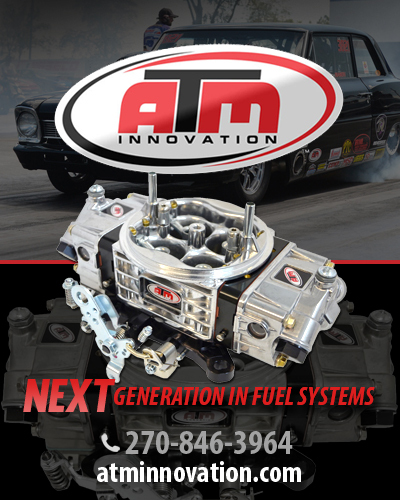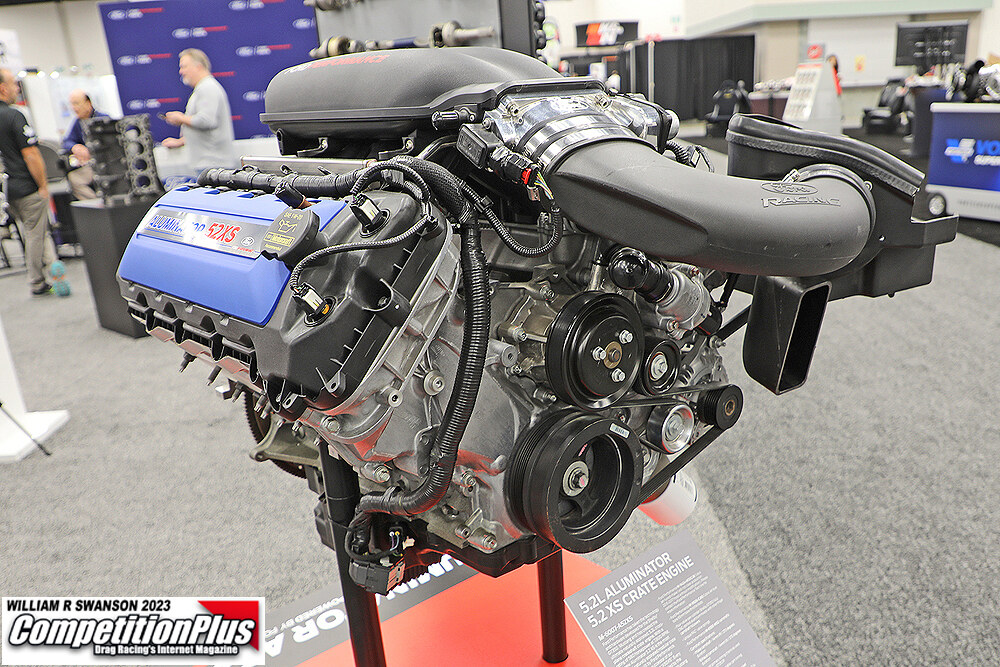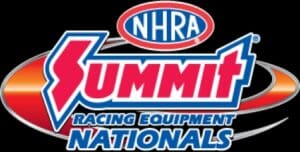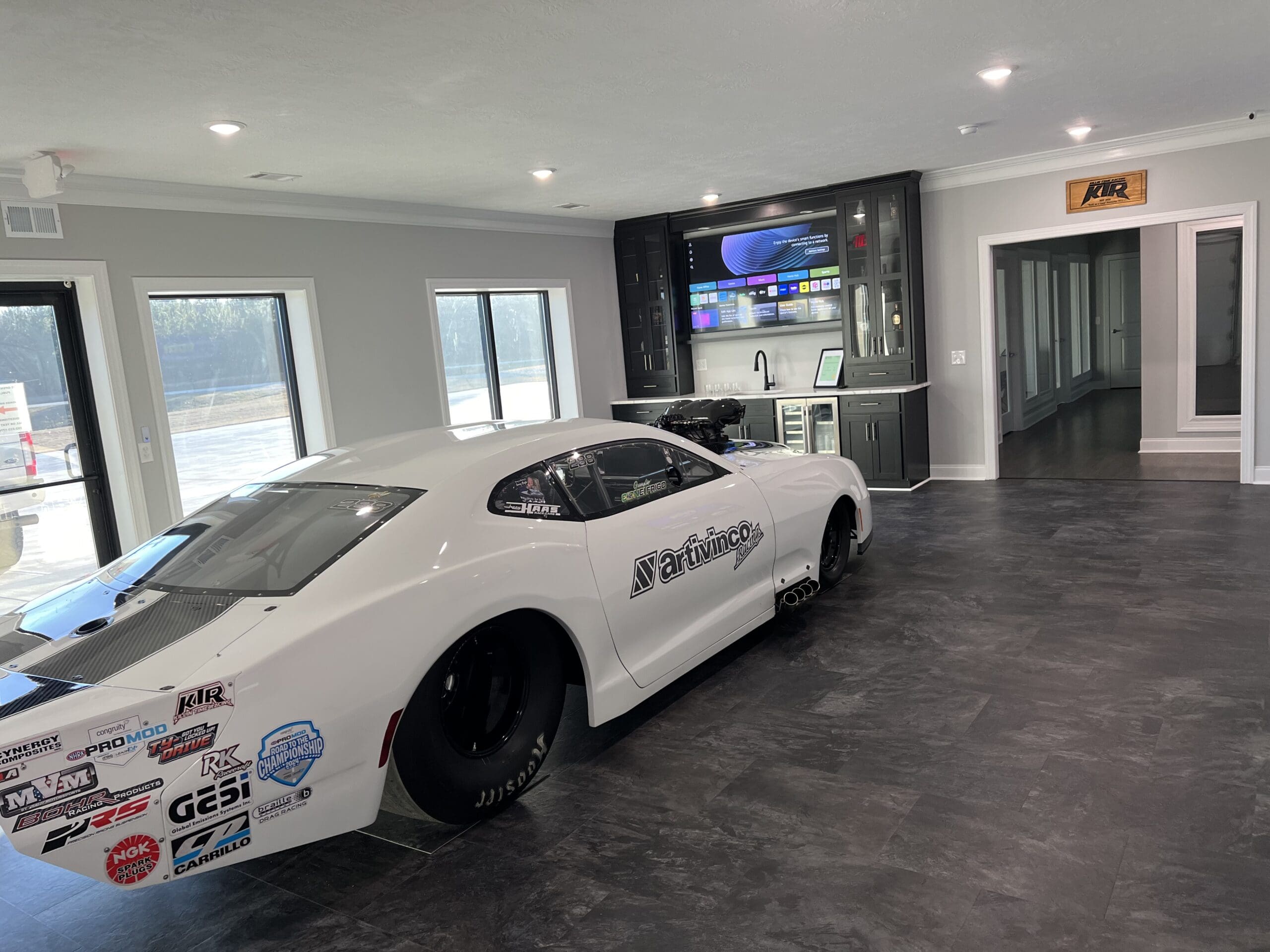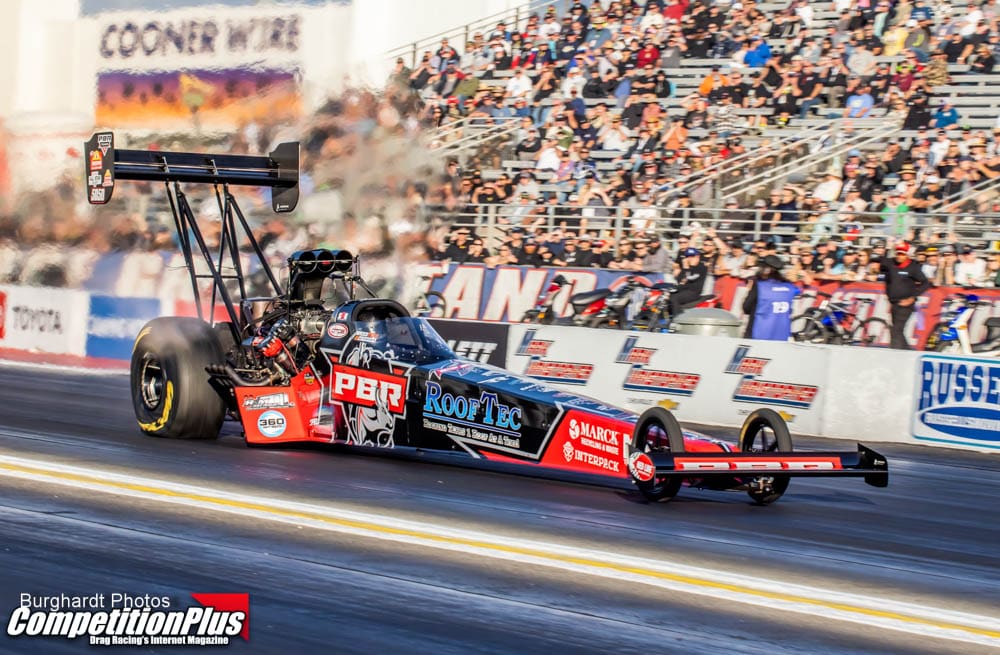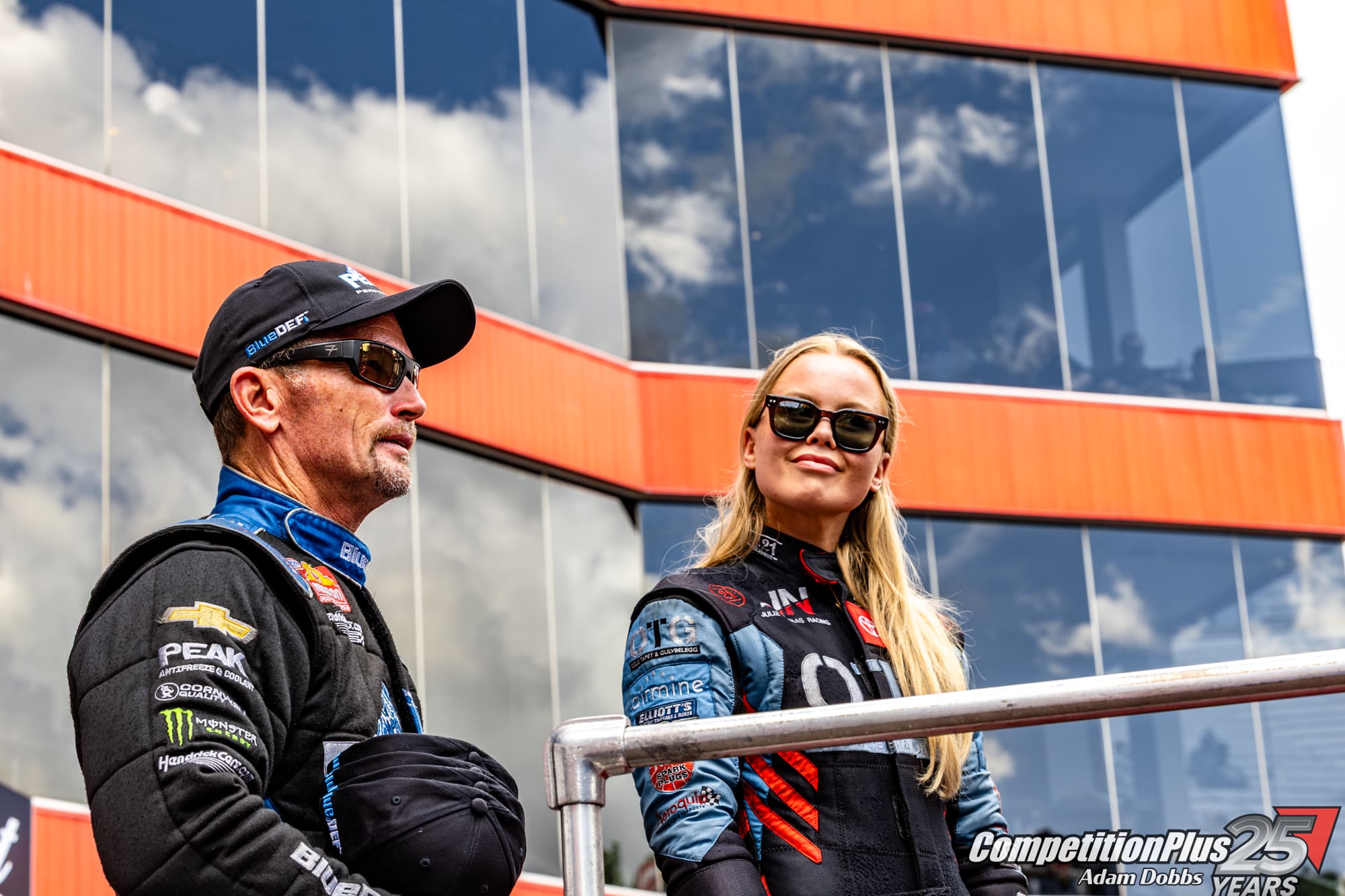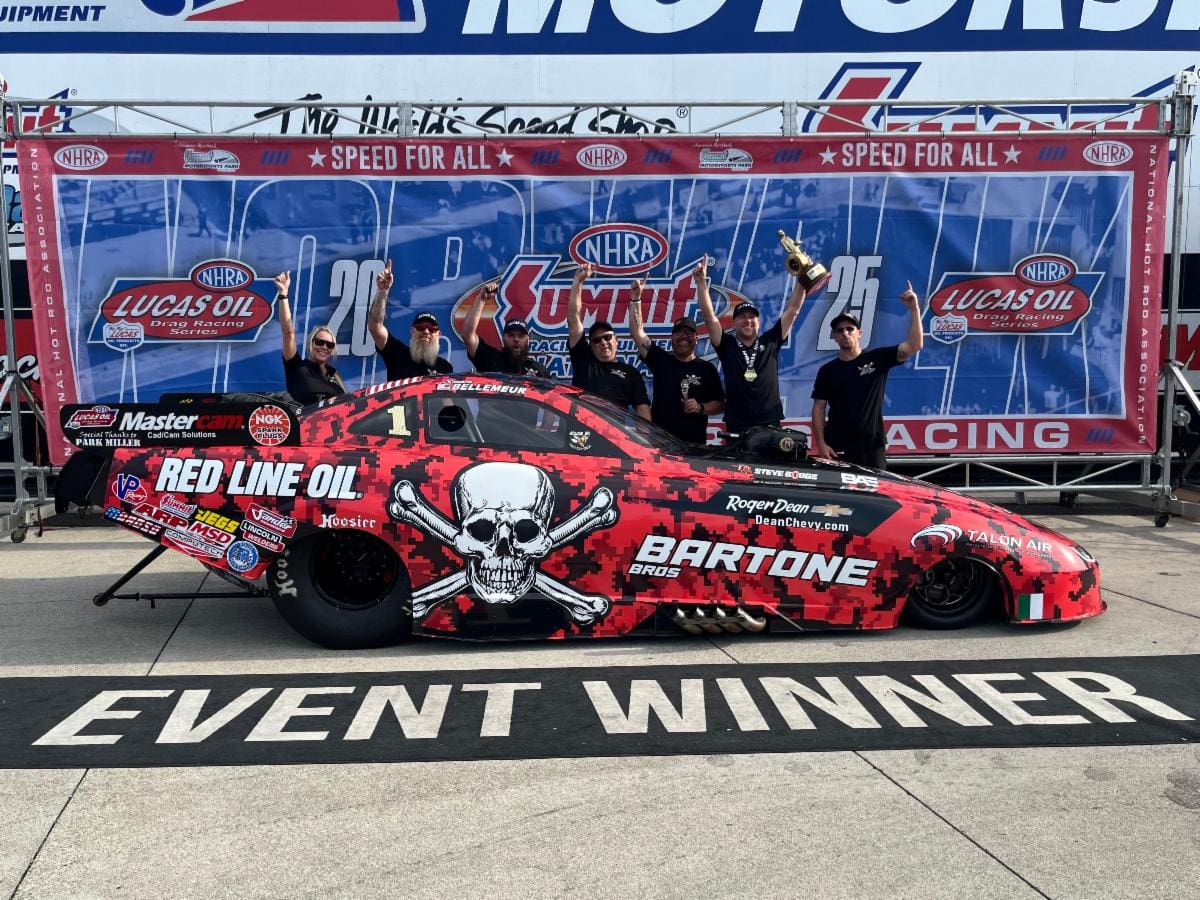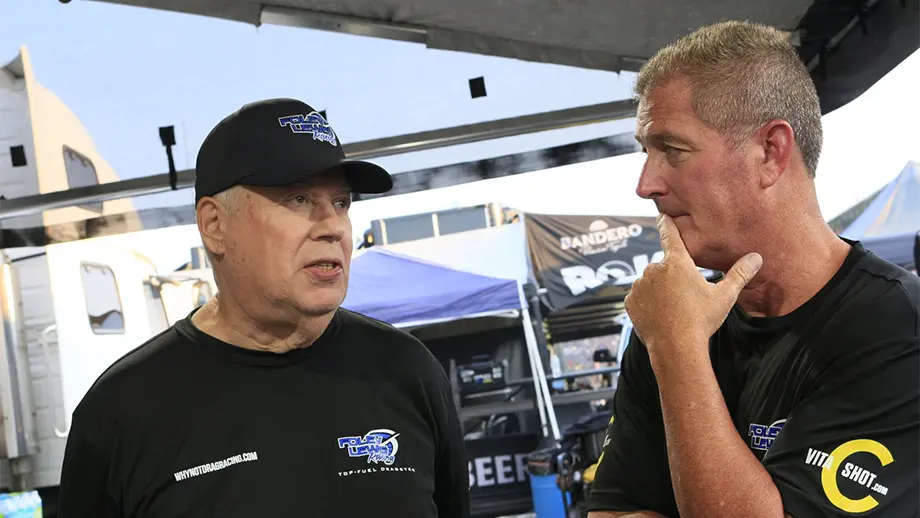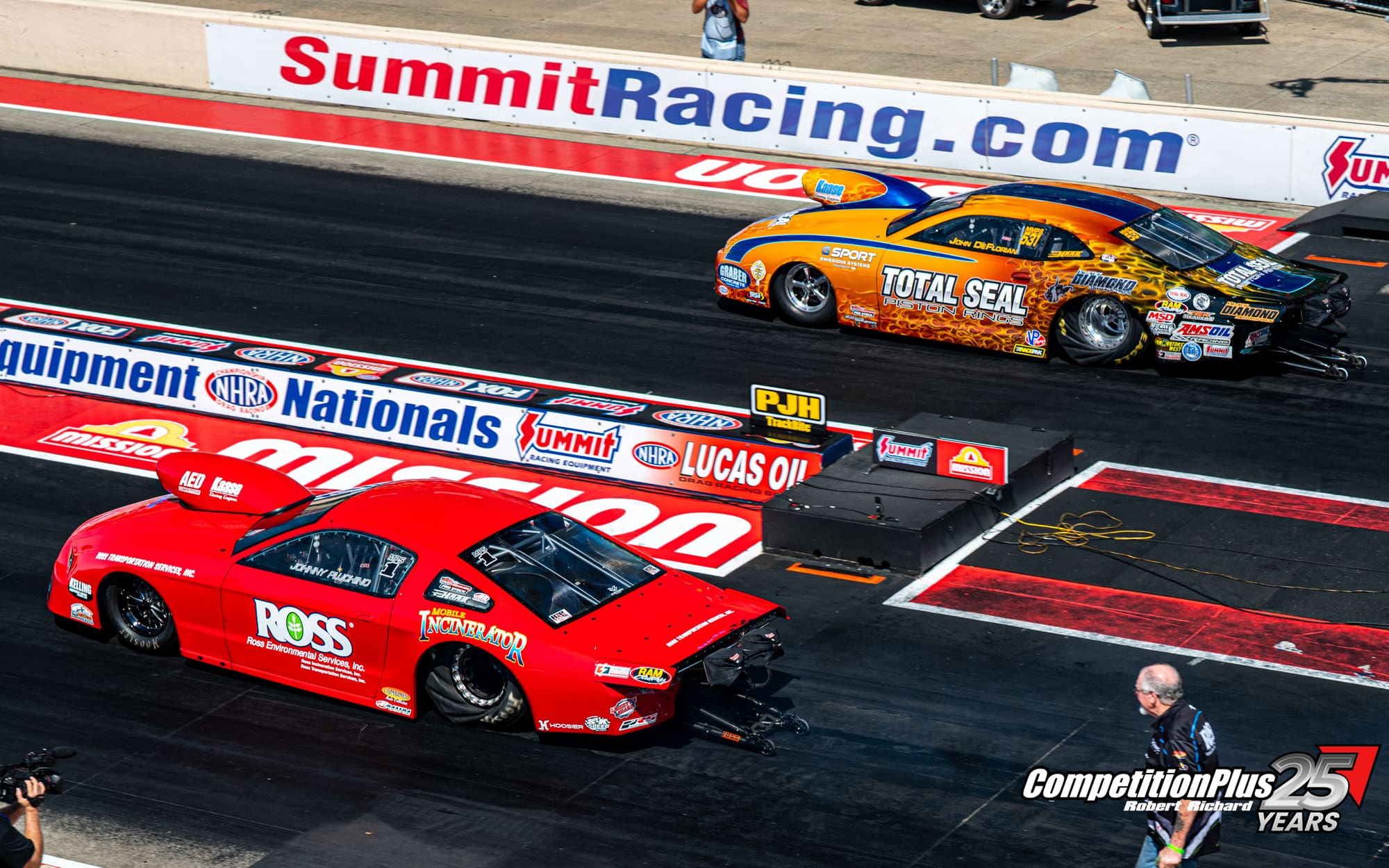After winning 16 NHRA titles – more than legends Bill “Grumpy” Jenkins, Butch Leal, or Ronnie Sox – and contending for the Pro Stock championship year after year, Bruce Allen had a horrific crash with Kenny Koretsky at the 2005 Dallas event and walked away from the sport. He hasn’t raced since. He’s hasn’t even been to a track to watch.
“That last run’s not what I want to be remembered for, but the truth is that in some people’s minds, it probably will be,” Allen said. “If it is, that’s fine. I was going to have to quit one day – that was probably as good a time as any. It was a perfect way, actually. All it really did is make us quit a couple of weeks earlier than we were already going to because we definitely weren’t planning on racing the next year anyway. As much as we kept saying, ‘This is it, we’re done,’ we somehow kept hanging on for a few more races – until then. Maybe that was God’s way of saying it was time.”
That 2005 season wasn’t Allen’s best with the legendary Reher-Morrison team of David Reher and the late Buddy Morrison, but it had been just a little over a year since he’d last appeared in a final and just three years since he’d last won. He didn’t have to quit then. He just did. It wasn’t like he was afraid to drive after he crashed.
 After winning 16 NHRA titles – more than legends Bill “Grumpy” Jenkins, Butch Leal, or Ronnie Sox – and contending for the Pro Stock championship year after year, Bruce Allen had a horrific crash with Kenny Koretsky at the 2005 Dallas event and walked away from the sport. He hasn’t raced since. He’s hasn’t even been to a track to watch.
After winning 16 NHRA titles – more than legends Bill “Grumpy” Jenkins, Butch Leal, or Ronnie Sox – and contending for the Pro Stock championship year after year, Bruce Allen had a horrific crash with Kenny Koretsky at the 2005 Dallas event and walked away from the sport. He hasn’t raced since. He’s hasn’t even been to a track to watch.
“That last run’s not what I want to be remembered for, but the truth is that in some people’s minds, it probably will be,” Allen said. “If it is, that’s fine. I was going to have to quit one day – that was probably as good a time as any. It was a perfect way, actually. All it really did is make us quit a couple of weeks earlier than we were already going to because we definitely weren’t planning on racing the next year anyway. As much as we kept saying, ‘This is it, we’re done,’ we somehow kept hanging on for a few more races – until then. Maybe that was God’s way of saying it was time.”
That 2005 season wasn’t Allen’s best with the legendary Reher-Morrison team of David Reher and the late Buddy Morrison, but it had been just a little over a year since he’d last appeared in a final and just three years since he’d last won. He didn’t have to quit then. He just did. It wasn’t like he was afraid to drive after he crashed.
“David and I could have put another car together,” said Allen, who still works at Reher-Morrison every day, spearheading projects, fabricating manifolds, and doing machine work. “We even thought about it. But why? Then there’s my wife. The crash was the Motorplex, our home track, and she was there. She saw it. I could never put her through something like that again. It wasn’t about me. If that had been the end of me, no problem. It would have been all over; I just wouldn’t be here anymore. It’s the people you leave behind who suffer. She said, ‘Please tell me you’re not going to do this anymore.’ “
Allen’s only other crash had been 16 years earlier, coincidentally also at the Texas Motorplex. “All those years I raced, and the only two incidents I ever had – that one, and one in 1989 when the parachute came out and threw the car into the wall – both were at the Motorplex,” he said. “They could have been anywhere, but they both happened there.”

That 1989 accident, in the shutdown area following a first-round win at the third-to-last race of the year, cost Allen a shot at the championship – the best shot he ever had. He won four races that year and eventually finished second to Bob Glidden, who won the 10th and last championship of his career, but it was just one great season among many. Allen finished in the top five in each of the first five years of his career and in the top 10 every year until 1994, when he only ran a handful of races.
Before his unannounced retirement in 2005, Allen had been in the top 10 in 2004 and 2003, won multiple races in 2002, and finished third in the standings in 2001, Warren Johnson’s last championship season. Never were Reher-Morrison’s cars anything less than contenders throughout Allen’s two decades in the sport’s most competitive class. But, over the years, the sport changed.
“I had no problem with that,” Allen said. “Everything changes. But it wasn’t like the old days, when you could miss a shift by 100 rpm or miss the clutch setup by 3 grams or one turn and still win. Those days are long gone. It used to be that you could use what you’d learned over the years. When you got to Columbus or Baton Rouge, you’d have the car set up completely different than you would for a good track. You knew what to do before you got there. Buddy and Dave were great at that. Your experience was an advantage, and it made racing more rewarding. Buddy was such a nice guy that his personality overshadowed it, but he was brilliant. So was Dave. It wasn’t just the horsepower they always had – it was a million things they knew about getting the car down any track. Now, you just buy that information.”
Even as Pro Stock evolved to the point where entire 16-car fields regularly are separated by just five-hundredths of a second or even less, Reher-Morrison remained at or near the top. The team just didn’t dominate as they had in the early days of Allen’s career and especially in the 1980s, when Allen’s predecessor, Lee Shepherd, reigned.
“When you’re not fast enough to win, you keep cranking up the pressure on yourself to have a .012 or a .015 light every time,” Allen said. “You can do it, but you can’t do it every time. It got to the point where you had to be in the good lane and make a perfect run to win, and you can’t do that every time. No one can, and it takes all the fun out of it. We had to start renting engines to people and taking money from the shop to pay for our racing. We didn’t have money to hire people to do everything for us. I guess we did, but when you own your own business, it’s just like taking money out of your pocket. You’re getting older, you’re testing constantly, you’re gone all the time, and your priorities are changing. What you’re willing to sacrifice changes. It’s not that I didn’t want to drive anymore, that I didn’t still want to go to the track and let the clutch out. It just got to the point where the good didn’t outweigh the bad.”

Not that anything ever came easily for Allen anyway. How would you like to be the one who had to replace Shepherd, one of the most beloved and respected drivers in drag racing history? Before his death in a testing accident in Ardmore, Okla., on Monday, March 11, 1985, Shepherd had won the NHRA championship in 1984, 1983, 1982, and 1981, and he probably should have won it in 1980.
Allen sure didn’t campaign for the job – they called him – and it wasn’t for some tryout. He bought Shepherd’s share of the team, and it was clear before he ever did a burnout that both David and Buddy wanted him for the long-term.
“I thought ‘I can do this,’ but I wasn’t going to be Lee Shepherd,” Allen said. “I knew that going in. I sure wasn’t going to try to outdo him. I knew him; I looked up to him. He’s just the kind of guy you admired. People said Joe Lepone should be the driver, this guy should be the driver, that guy should be the driver. I wasn’t in a box; I knew what people were saying. I just figured I’d do the best I could.”
It turned out to be pretty good. Just three races into his 20-year tenure as Reher-Morrison’s driver, at the 1985 Springnationals in Columbus, Allen reached his first Pro Stock final. He won the following race, the Grandnational in Montreal, and the one after that, the Summernationals in Englishtown, and a long and successful career was born. Allen won 10 NHRA national events in the 1980s, a couple more in the 1990s, and four more in the first half of the 2000s.
“After the crash, I thought, ‘If this is it, if this is the end, it’s good enough,’ ” Allen said. “I won a few races and did the best I could. What I hated was when people would always call and tell me what I did wrong – people who hadn’t raced in forever and still wanted to be racing. A lot of old racers walk around living in the past. I have no idea what caused that crash; it’s not like I look back and think of what I should have done differently. Dave walked the track and saw high-speed chatter marks, but it couldn’t have been that bad. Pro Stock cars shake all the time; you just put it in the next gear. I mean, I’ve never been one to make out-of-control runs just so I could come back and say how brave I was for getting it to the other end. Anything weird happened, I’d just shut off. I’ve done it a bazillion times, and I would have done it then if anything had seemed out of control at all. So I don’t know. I do know that if Koretsky had left anywhere close to on time, he never would have been there.”
Almost five years later, Allen still hasn’t been to a race, and he won’t be going to one anytime soon. “There are a few people I’d want to see – Mike Edwards, Kenny Delco, maybe a handful of others,” he said. “Edwards is always telling me to please come to a race – at least come to Dallas. But why would I? To see all the guys I used to race against? Those guys weren’t my friends. I have friends. Those guys were my competitors. I wouldn’t have anything to do with them then, so why would I now?”












